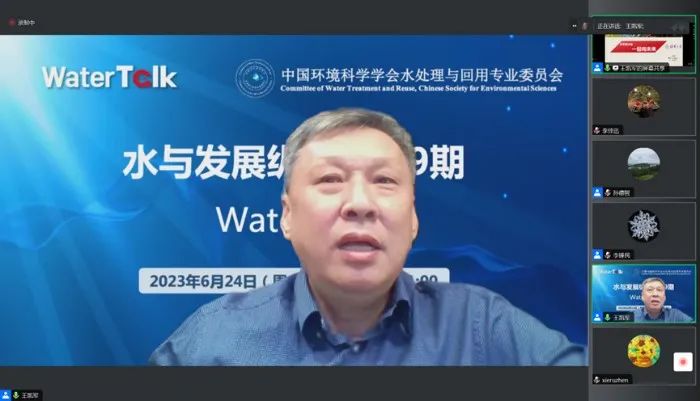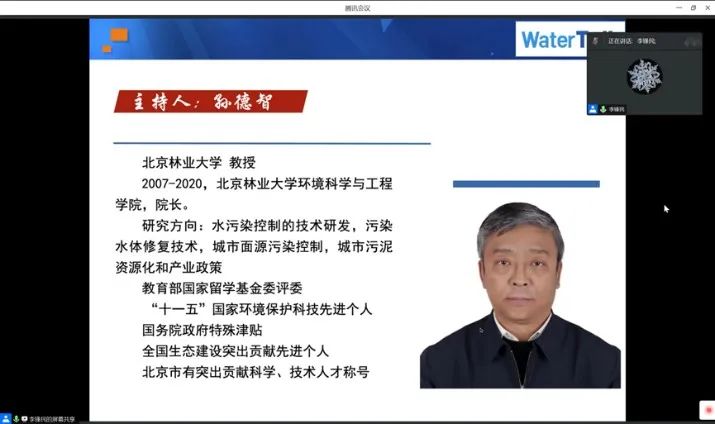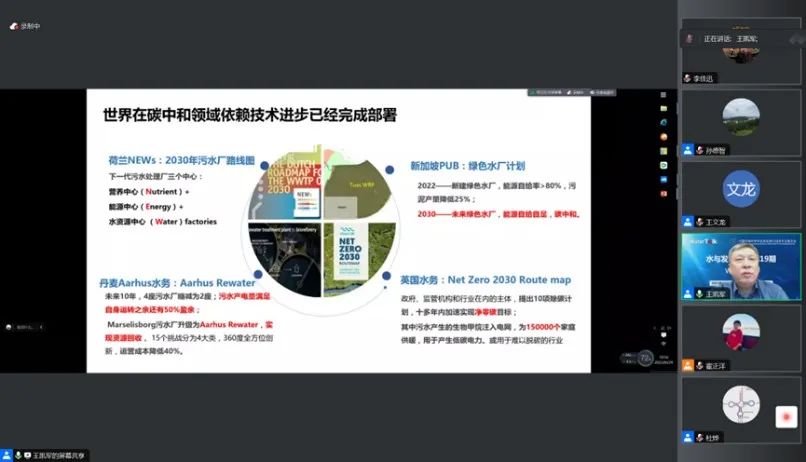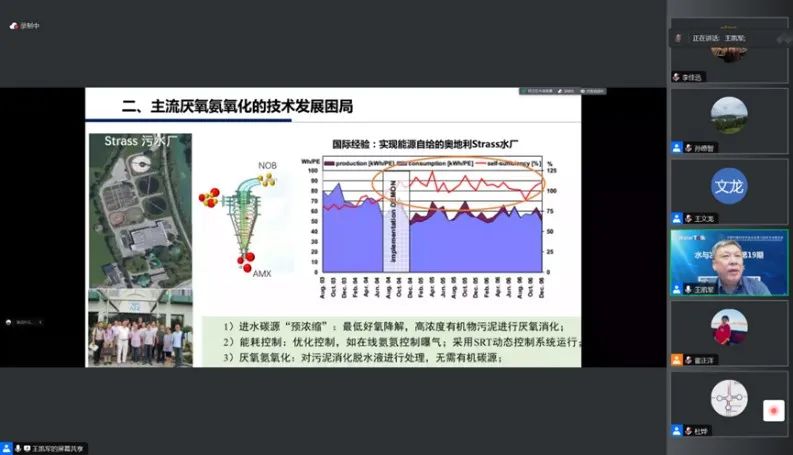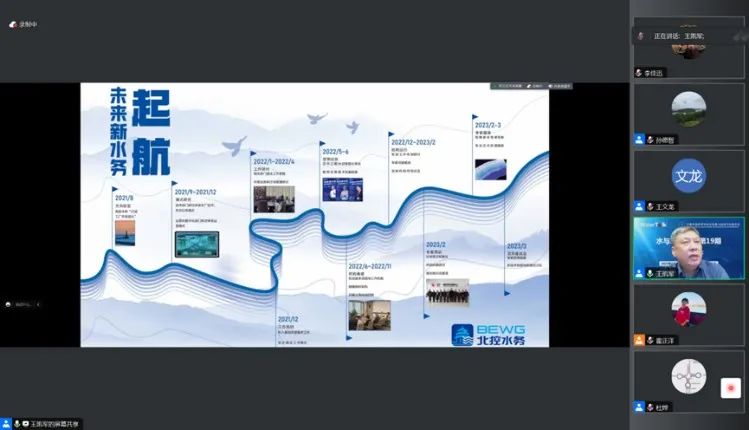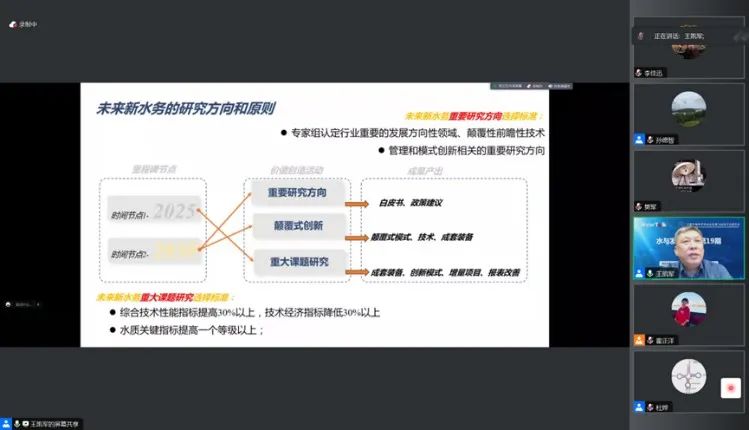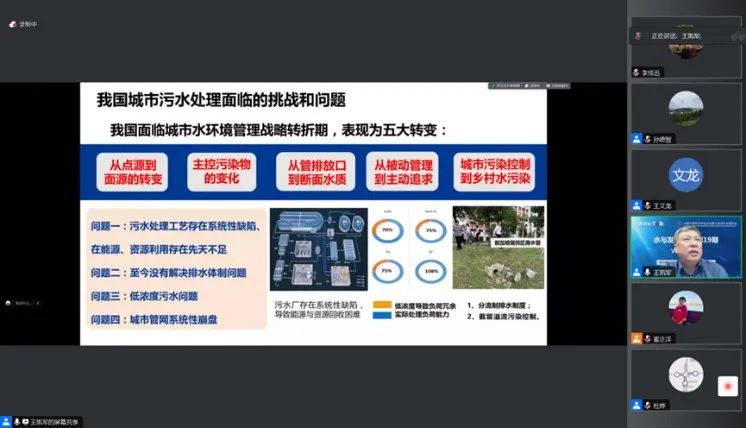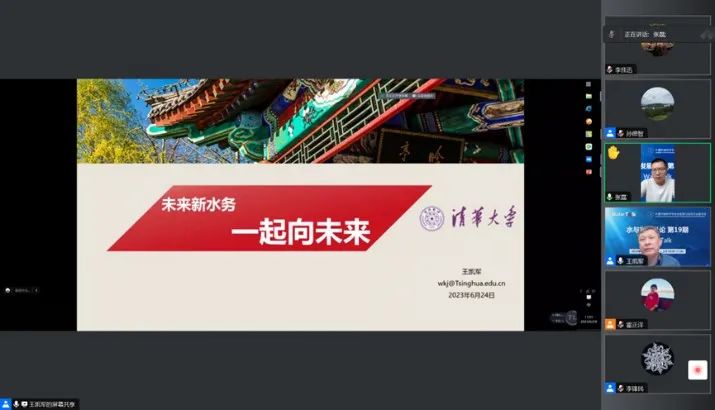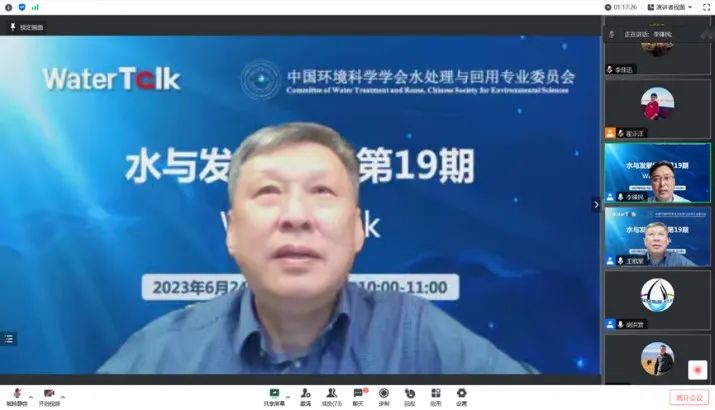The 19th Water and Development Talk
来源:本站原创 作者:本站编辑 2023-06-28 10:27:20
For and Beyond Water As an important area of infrastructure construction and livelihood projects, the water industry profoundly affects the quality of life of residents and the sustainable development of urban and rural areas. With the accelerating process of urbanization, how to rapidly empower the development of the water industry and how to promote water management to achieve convenient, accurate and high-quality development is an important reform direction of the current water industry. State Ministry of Ecology and Environmental Protection Technical Committee, Director of the State Ministry of Environmental Protection Environmental Technology Management and Assessment Engineering Technology Center, the main body of the national water special projects experts, Tsinghua University, Professor Wang Kaijun in the 19th WaterTalk held on June 24, 2023, made an academic report titled "the future of the new water together to the future," the report is mainly from the "science and technology" to "development: the future is here". development: the future has arrived", "China's water: facing the gap", "exploring the future: results can be expected", "innovation breakthrough: the future development" four aspects are introduced, and at the same time, the future of China's water industry. It also provided a new insight into the future development of new water services in China. (1) Calls for change in the field of water environment infrastructure. In the United States, for example, the cumulative investment needs from 2020 to 2029 in the water system investment gap is expected to be as high as 434 billion U.S. dollars, the U.S. three major water industry associations set up a working group for the future of the water industry development challenges, calls for change, from the promotion of technological innovation, amendments to the environmental protection laws and regulations, the development of action roadmaps and other aspects of the proposal, and ultimately submitted the relevant bill. And China is facing the same problem. (2) In China, water technology as a whole lags behind the West in this round of technological development. From the point of view of human history, sewage treatment in 1914 activated sludge was born as a symbol, but now only a hundred years of history, through the pollution control, sustainable development and is still in the unknown future of the new water three stages. Sustainable development stage, from the point of view of carbon emissions, resource recovery and material cycle, the international community has completed the deployment of technology, into a series of new technologies to implement the stage of completion of the industrialization of the strategic layout; and our country in this stage and lagged behind five to ten years, and due to the existence of sewage systematic deficiencies in greenhouse gas reduction, resource recovery and other aspects of the gap continues to widen, and gradually moving farther and farther away. (3) Full confidence in China's exploration of new water services in the future. As a leading enterprise in the industry, Beikong Water has long carried out the exploration of future water services, advocated this action plan for future new water services, and the Beijing-Tianjin-Hebei Innovation Center has jointly established a research center for future new water services, determined the research direction and principles of future new water services and the working mechanism, and explored the form of enterprise participation. Future New Water should be an open form of organization, and more enterprises and institutions are welcome to participate in this plan. (4) China is facing a strategic turning period in urban water environment management, which is manifested in five major shifts from point source to surface source, the change of main control pollutants, the change from pipe outlet to cross-section water quality, the change from reactive management to proactive pursuits, and the change from urban pollution control to rural water pollution, and at the same time, we are facing a number of challenges and dilemmas. In response to these issues, the opportunities and paths of ecological civilization development model, nitrogen recycling and utilization, upstream concentration concept and other aspects of industrial breakthroughs such as heating pipe networks and building energy consumption are proposed.

